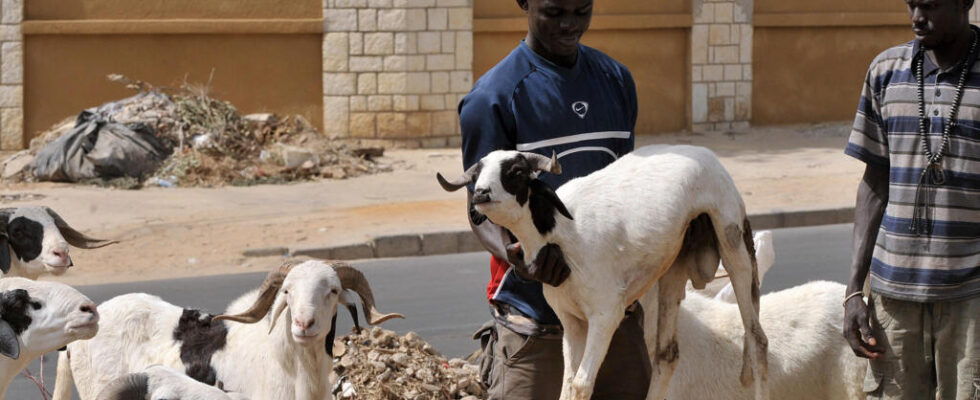Eid el-Kebir, the biggest festival in Islam, will be celebrated on June 16 and 17, 2024 in Muslim countries and around the world. Called Tabaski in West Africa and particularly in Mali, Senegal or Guinea where more than 85% of the population is Muslim, this festival is usually celebrated with pomp. But, as is often the case on this occasion, incomes are down and expenses to celebrate Tabaski weigh on households. Explanations.
3 mins
At Mali, the excitement around Tabaski is less, due to the daily power cuts which have led to the closure of many businesses. A worker in a human rights organization, Aly Bocoum, is one of the privileged with a salary that falls every month. But, this year more than others, his key word was anticipation. He actually spread his budget of more than 500 euros over several months to contribute to the expenses of around ten members of his family. “ For the Tabaski festival, approximately, I spent around 350 to 400,000 CFA francs [533 à 610 euros environ, NDLR] for clothes, family and children. For the purchase of the ram, in general, I anticipate as I have the parents in the village. It’s easier there for maintenance and everything. I bought the ram 6 months ago for about 50,000 [76 euros, NDLR]. Compared to what I see in Bamako, this ram, to have it, you have to pay at least 100,000 FCFA [152 euros] “.
A very important price considering the standard of living in the country. But, for the faithful who have the means, it is recommended to immolate a sheep to commemorate the devotion of the prophet Abraham who should have sacrificed his son before he was replaced by a ram by the angel Gabriel, according to Muslim religion.
“ For the preparation of this party, we risk not being able to get by on our simple income »
In Guinea, a sheep sells today for 200 euros, a sum higher than the salary of certain civil servants, according to economist Safayiou Diallo. This burden is therefore difficult to bear for many Guineans. “ When you look at everything it takes to prepare for this party, you might not be able to get by on just your income.he laments. This is why some resort to debt from friends, family or the banking system to try to buy party clothes for the children and everything that follows. “.
Read alsoAfrica economy – The price of animals panics Tunisians a few days before Eid el-Kébir
At Senegal, the prices of food on the markets are very high. For Momar Ndao, president of the country’s consumer association, this inflation is due to the presidential election and the change in the administration: ” When there is a change of regime, there is a wait-and-see attitude. Businessmen are waiting to see which direction the new government will take. And, as the new government has promised price reductions, some are anticipating by increasing them so that, if ever there is a reduction, they still remain in very high proportions of gains. »
Beyond the sheep, the clothes and gifts for the children and the expenses, the essence of Tabaski is above all spiritual. Sofia Cissé lives in Dakar. Sharing with those most in need is a tradition for her. “ If we have saved money for a year, there is also an amount to be deducted to give to those most in need.she emphasizes. And even for Tabaski, when we have cut the mutton, it is not up to us to eat it alone. We must also try to see the neighbor who may be deprived and also give him shares of the sheep. “.
Ivory Coast: authorities want to reassure sheep supplies as Tabaski approaches
